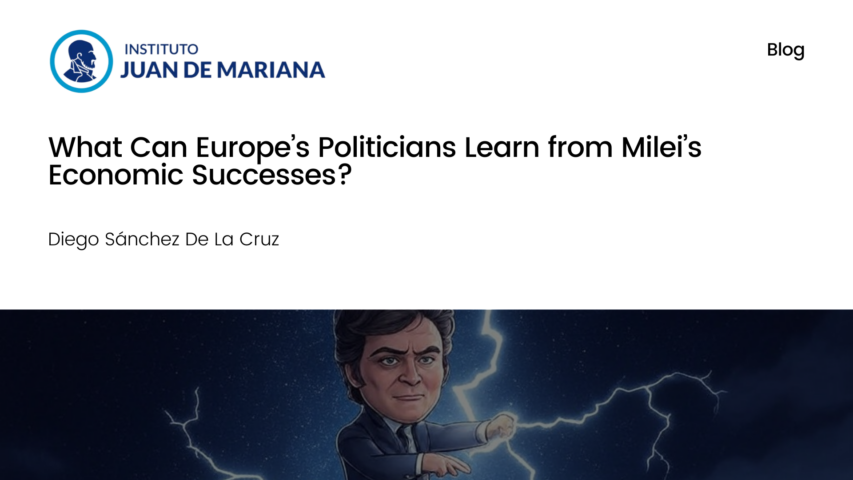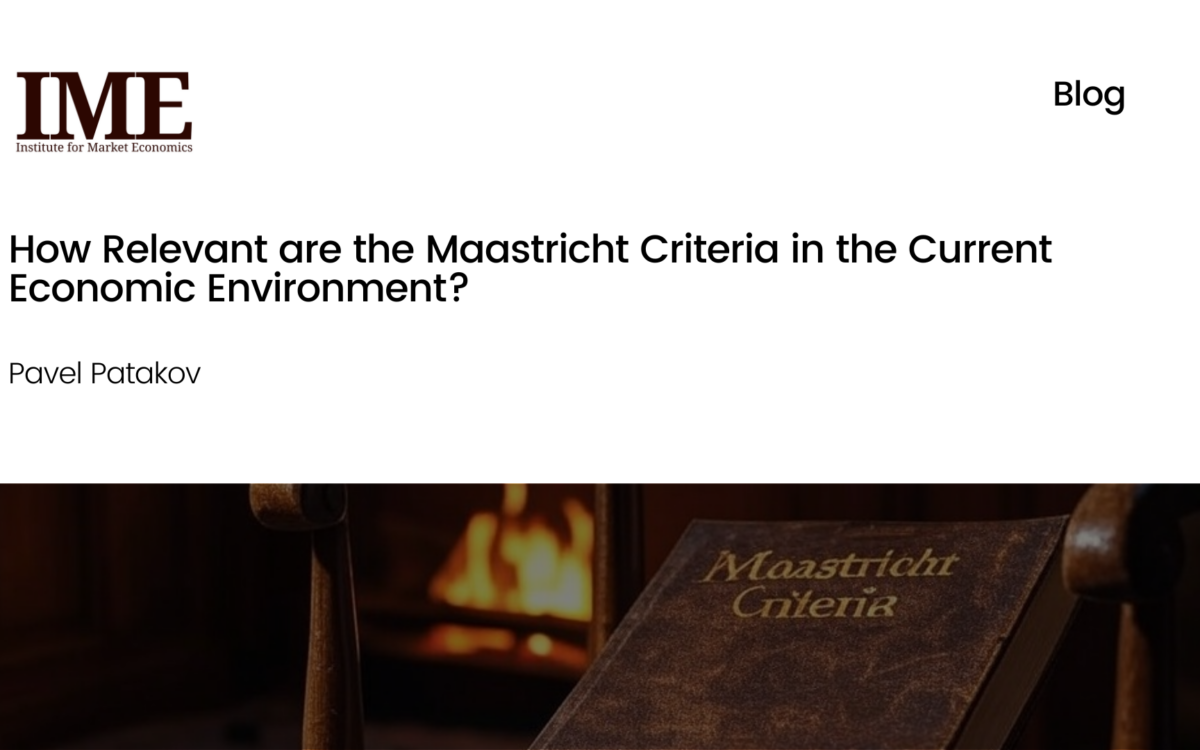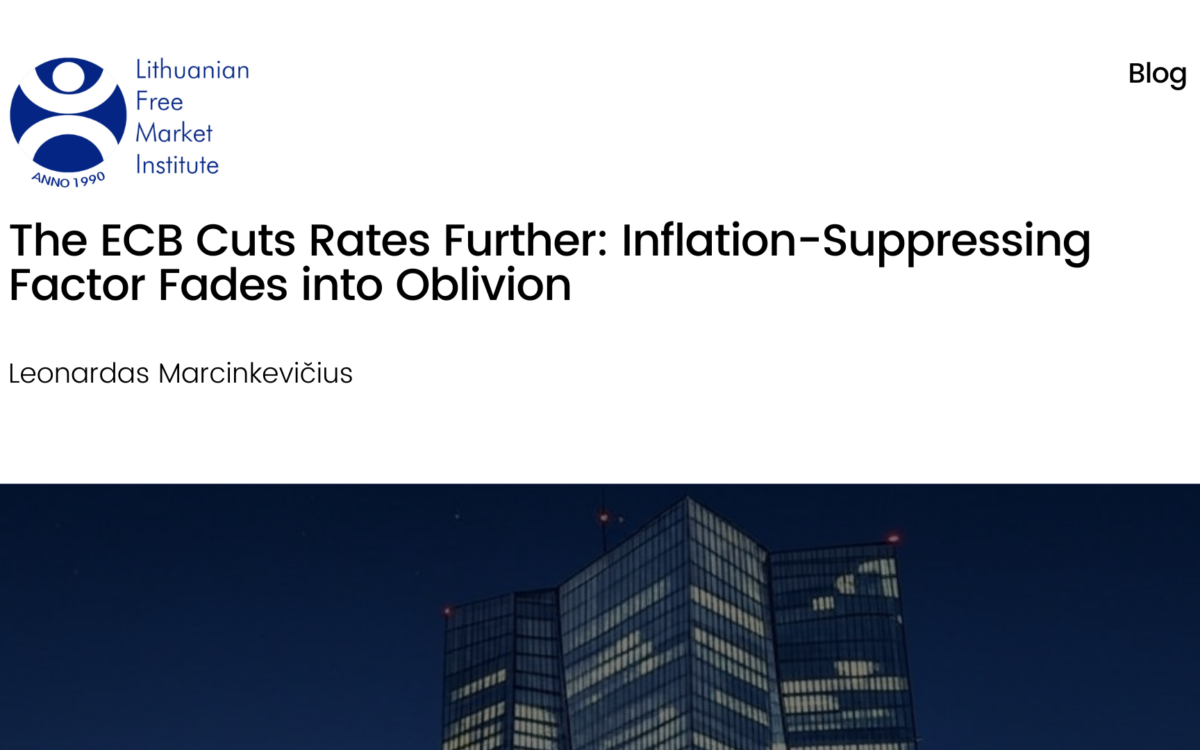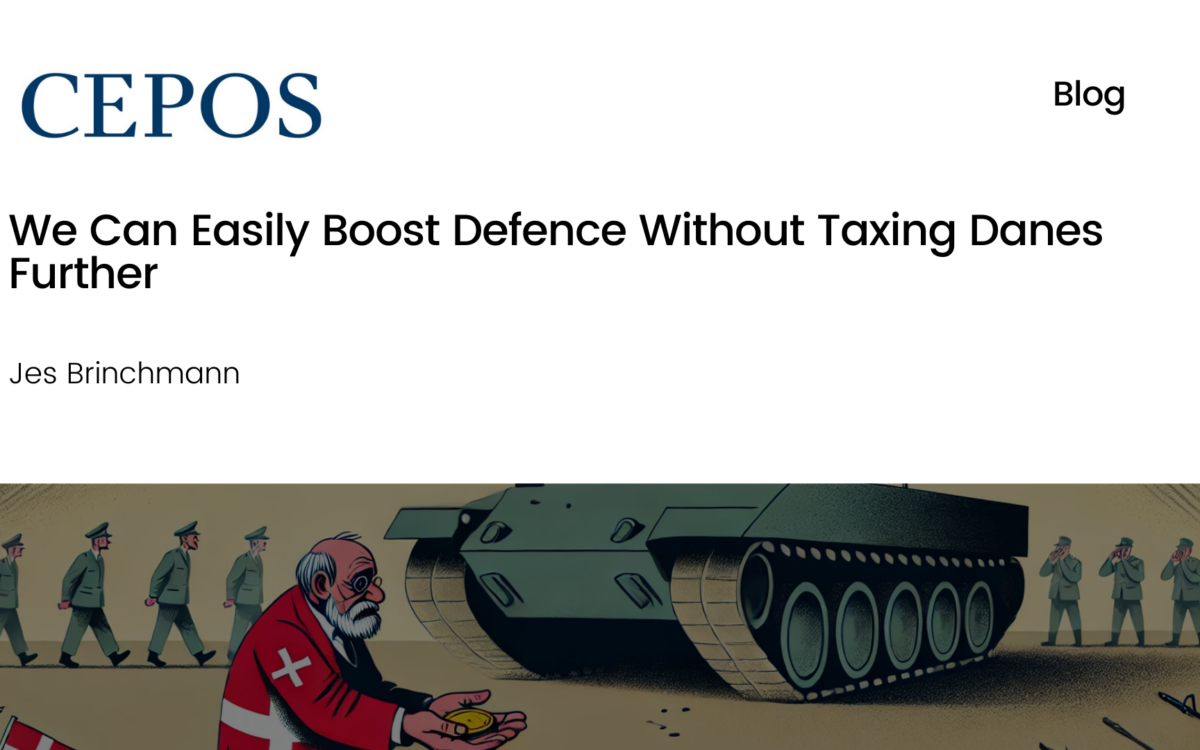What Can Europe’s Politicians Learn from Milei’s Economic Successes?

What Can Europe’s Politicians Learn from Milei’s Economic Successes?
Diego Sánchez De La Cruz // 20 December 2024
As shown in the latest report by the Instituto Juan de Mariana, Argentina’s first year under President Javier Milei has been a transformative period, offering valuable insights for economies across the globe. By addressing hyperinflation, budget deficits, and overregulation, his administration has demonstrated how ambitious reforms can reverse economic decline. Europe, with its own fiscal and regulatory challenges, can draw meaningful lessons from Argentina’s experience.
The five key milestones of Milei’s first year are the following:
- Inflation reduction: Argentina reduced monthly inflation from 25 per cent in December 2023 to below 3 per cent by November 2024, bringing the annualised inflation rate down from 324 per cent to 38 per cent.
- Fiscal stability: Milei’s administration ended 12 years of consecutive budget deficits, achieving a 1.7 per cent primary fiscal surplus and a 0.5 per cent overall fiscal surplus in the 2024 January–October period.
- Exchange rate stability: The gap between official and parallel exchange rates narrowed from 150 per cent to just 3 per cent, paving the way for lifting currency controls and potential dollarisation.
- Recovery: Despite inheriting a recession and experiencing an initial contraction, the Argentinian administration under Milei oversaw economic growth of 3.3 per cent in Q3 2024 and is expected to sustain this momentum in Q4 2024. Projections for 2025 are very optimistic, with growth forecasts of 5 per cent or even 6 per cent in 2025.
- Poverty and extreme poverty rates have declined to levels below those inherited by Milei’s administration. This trend will accelerate in 2025, as the main driver for this positive development is a combination of supply-side reforms and a sensible monetary policy – a successful mix that has increased the purchasing power of worker salaries, as a result of rising pay and falling inflation.
Europe’s economic structure may be different from that of Argentina’s, but at least four key lessons can be learnt from Milei’s early success:
- First, pursue a growth-generating agenda that limits inflation and supports businesses, thus increasing worker compensation. Milei has put an end to hyperinflation, which has proven pivotal for regular Argentinians who have suffered for years from rising prices and falling wages.
- Second, close the budget deficit as quickly as possible. Identify inefficiencies and unnecessary expenses and communicate to the general public the virtues of accountability and transparency. This will free up credit for companies and families while reducing the future tax burden due to lower government debt.
- Third, pursue deregulation and red tape reduction aggressively, with the explicit aim of reducing barriers that hinder growth and investment and hurt businesses and individuals. Both the Draghi and the Letta reports highlight the need to deregulate the European economy, and Milei’s successes in this area are promising, and have already inspired the incoming US administration to pursue a similar agenda.
- Fourth, tackle the housing crisis by abolishing rent control and facilitating new construction to induce a supply-side boom. Argentina has already seen a 30 per cent reduction in rents as a result of Milei’s decision to liberalise the housing market.
The numbers clearly show that Milei’s first year in office has set a remarkable precedent for economic stabilisation and growth. By embracing disciplined monetary policies, decisive fiscal adjustments, and sweeping deregulatory policies, Argentina has tackled long-standing economic issues with remarkable success.
European policymakers, facing stagnation and structural inefficiencies, should take note of these reforms. The lessons from Argentina highlight the importance of bold leadership and a willingness to endure certain short-term challenges to foster long-term prosperity.
Diego Sánchez de la Cruz is Head of Research at Instituto Juan de Mariana and CEO of Foro Regulación Inteligente.
EPICENTER publications and contributions from our member think tanks are designed to promote the discussion of economic issues and the role of markets in solving economic and social problems. As with all EPICENTER publications, the views expressed here are those of the author and not EPICENTER or its member think tanks (which have no corporate view).



